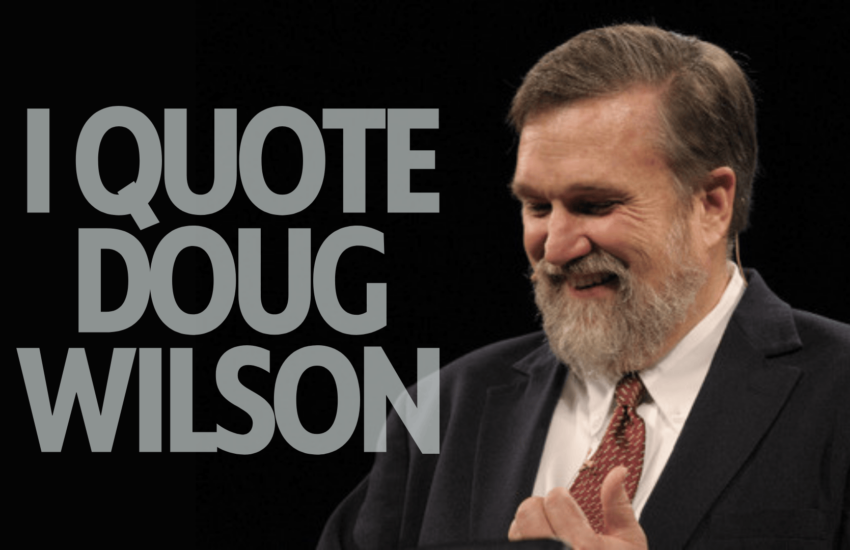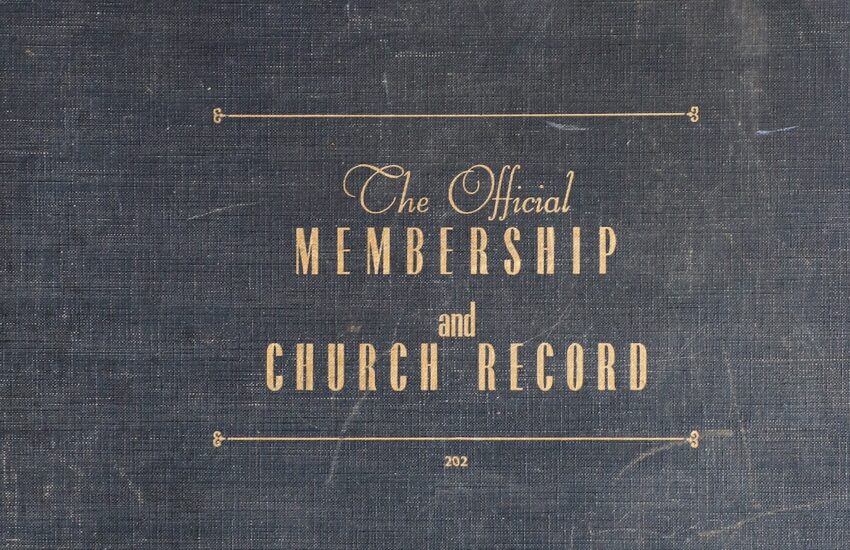Agreeing to Disagree in a Culture that Disagrees to Agree
Greetings, dear reader.
I know. It’s been a minute. As I’ve said before, everything on my schedule matters, but not everything matters at the same time. Life, in its usual way, showed up with a few surprises, tossed them at my head, and asked, “How do you like them apples?” To which, the only reasonable response I’ve found is to step aside for a moment, collect what you can, and make some apple juice. Preferably without whining, and with enough left over to share. Like this post.
Among these many challenges in life were not a few offended Christians. And when I say Christians, I mean some Christians with a capital ‘C’, and others with a lowercase ‘c’ – such distinctions made, of course, only with the aid of a large cup of caffeine with a sprinkle of long-suffering, and more than a little discernment. But then again, we shouldn’t be surprised. As Paul reminds us, “not all who are descended from Israel belong to Israel” (Romans 9:6). And likewise, not everyone who claims Christ is a co-heir with him. As our Lord put it, “Not everyone who says to me, ‘Lord, Lord,’ will enter the kingdom of heaven, but the one who does the will of my Father” (Matthew 7:21). In other words, not all children of Abraham are children of the promise, and not all who sit in the pew meet with God. Some are just extremely pious at squatting. I call some, ‘C’hristians, mostly because I’ve seen no compelling evidence to the contrary. And some I call ‘c’hristians who, bless their hearts, have provided more than enough evidence against the claim. If we are to know them by their fruits, golly, I wish I hadn’t tasted those!
In the end, when all the smoke had cleared and the dust had settled, though not without considerable effort, one of the central reasons for the offense stood out with distinctive clarity. A lot of Christians have no coherent framework for godly disagreement. None. Zip. Zilch. Nada. For all the talk of Christian liberty, Romans 14, the priesthood of all believers, and something about “we’re all part of the same body,” there was an odd, gaping hole in their theological ability to disagree like grown-ups.
Most, if pressed, would affirm that true Christians can differ, at least in theory. They’d cite Paul and Barnabas parting ways (Acts 15:39) as a kind of ecclesiastical footnote, and maybe throw in something about Calvin and Luther not exactly sending each other Christmas cards. But when it comes time to actually applying the principle, to hold tension in charity, to walk together while disagreeing about non-essentials, to major on the majors without sniping at the minors, the gears clog up. Because you see, though they confessed that Christians could disagree, they had been catechised by a culture that treats disagreement as a sort of divorce.
We are, after all, living in the golden age of personal offense.
The result? Friendships fracture over footnotes. Fellowship dissolves over phrases. And suddenly, someone you shared communion with last month is now an “apostate” because they prefer a different Bible translation or dared to think that just maybe there is no such thing as a pre-tribulation rapture. People don’t know how to hold disagreements even to the point that every theological paper cut feels like a decapitation.
The tragedy isn’t that Christians disagree. The tragedy is how quickly disagreement becomes disownment. Somewhere along the way, we’ve equated “he thinks differently” with “he must be deficient”, deficient morally, intellectually, and spiritually. But Christian friendship isn’t built on mental clones or personality cults. It’s forged in the fire of charity, shaped by the cross, and bound by the blood of Christ, not the blood pressure raised over every minor doctrinal difference.
When we collapse every disagreement into a first-order issue, we make the foolish equal to the fundamental. We elevate tribal tags and downgrade the image of God in our brother. And then we wonder why our friendships bleed out the moment tension shows up. And grace, that scandalous doctrine that saved us, gets shoved out the door by the very people who sing about it loudest on Sundays.
Don’t hear me wrong. There are doctrines worth dividing over. The gospel is not a mushy marshmallow. The faith once delivered to the saints is not up for sentimental reinterpretation.
But God gave us categories for these sort of things.
There’s a difference between heresy and error, between wolves and misguided sheep, between someone in need of correction and someone in need of church discipline. But when every disagreement gets treated like heresy, all we’re left with is heresy-hunters, discernment bloggers, and no church left to spare.
So here’s the plea, don’t let pride masquerade as piety. Don’t burn bridges in the name of boldness. Don’t throw away a brother or sister because they didn’t say it the way you would have. Our unity is in Christ, not in being right all the time, but in being bound to the One who is.
Because if the gospel is big enough to reconcile us to God, surely it’s big enough to help us talk about eschatology, paedobaptism, and head coverings without declaring nuclear war.
The Kind of Friendship That Stays
True Christian friendship is not the brittle kind that snaps at the first sign of strain. It is not paper-thin or skin-deep. It is covenantal, forged in the same fire that binds us to Christ, a fellowship of saints who have been loved while unlovely, forgiven while guilty, and embraced while still covered in the muck of sin.
The beauty of Christian friendship is not that we always agree, but that we always return.
We return to the table, to the Word, to the gospel, again and again, because our bond is not based on sameness, but on the Saviour. Christ is not ashamed to call us brothers (Hebrews 2:11), so how dare we let a disagreement make us ashamed to call one another friend?
The world teaches us to discard relationships when they become inconvenient. The church teaches us to cling to one another because Christ clung to us. The world may divide at the first sight of doctrinal disagreement, but the church must bear with one another in love (Ephesians 4:2), pressing on toward maturity, even if we limp there together.
Real Christian friendship knows how to laugh in the middle of a theological argument. It knows how to say, “You’re wrong, but I love you.” It knows how to sharpen without stabbing, and rebuke without retreating. It knows that peace doesn’t mean pretending to agree, it means loving one another enough to disagree without letting go.
So if the Lord has given you a friend in Christ, someone who sticks, who speaks truth, who stays when others walk, give thanks. Guard that friendship. Nurture it. Disagree with grace. Debate with humility. And remember that the goal is not to win the argument but to win your brother, and dare I say, to be won over to the other side by your brother.
Because eternity is long, and the table is wide, and you just might be sitting next to them forever.
On Humility, and the Treasure Hidden in the Field
If there’s one ingredient most absent from our disagreements, the thing that turns every spark into a wildfire, it’s humility.
We live in a culture that no longer knows how to agree, but ironically insists it cannot be corrected either. We’ve been trained to clutch our positions like heirlooms, not like hypotheses. The air we breathe says disagreement is an attack and correction is an insult. And so, even when we’re wrong, we double down. We entrench. We weaponize. We cancel.
But the Christian is supposed to live differently.
There’s a reason the Bible commands us to be “quick to hear, slow to speak, slow to anger” (James 1:19). And it’s not just for polite conversation, it’s because humility is the operating posture of every true disciple. A Christian is not someone who has everything figured out. A Christian is someone who has bowed the knee to the One who does. And so he listens, not just to speak, but to learn.
There are doctrines that are fixed and foundational — blood-bought non-negotiables that define the gospel. But there are other things, glorious things, that still require the trembling touch of a humble mind. There’s a reason why Christians ought not to be married to their eschatology to the point that they cannot consider an alternative. There is, baked into Scripture itself, a degree of mystery, a divine restraint to spell it all out. And anyone who tries to wrap the Second Coming in a tight little chart with zero tension left is likely reading the white spaces more confidently than the black letters.
I’d argue the same even about baptism. Yes, it matters. Yes, we need conviction. But when mature, godly men from every century have disagreed on this, and when they’ve done so with love and awe, we ought to recognize that some things are deeper than they first appear. And that our brothers are not our enemies simply because their exegetical conclusions diverge from our own.
The best theologians I know are the ones who still get stumped by a good question. They’re not afraid to say, “I need to think about that.” Because they’re not defenders of their own brand, they’re treasure hunters. And the field they’re digging in is the Word of God. They want the truth more than they want to be right. They’re not eager to win arguments but to uncover the riches of Christ, wherever they may be buried.
That’s humility. And that’s what makes all the difference.
So, disagree if you must. Argue if you must. But never stop being the one who listens, the one who considers, the one who repents, the one who bends. Because the real danger is not being wrong. The real danger is being unteachable.
And if Christ is still gentle and lowly in heart, then so should we be, especially when we’re trying to prove a point.





